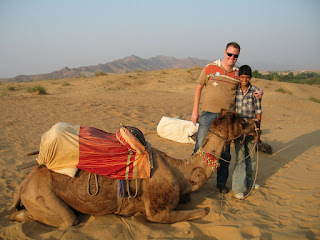The moment we left Dhaka (the capital of Bangladesh) international airport the overwhelming density of people is staggering. Just outside the terminal doors, there is a set of metal bars. This is nothing to do with customs, or any other official airport-like business. It is simply there to hold back the hoard of people who stand outside, put their arms through, and gesticulate wildly at the passing foreigners. The construction creates the illusion of a prison, packed to the brim with bangladeshy nationals, except there is no wall on the other side, merely around the airport. Imagine, a whole nation of poeples seemingly imprisoned by nature of their inability to access the airport.
Later, I found out that this was completely the wrong impression, and infact there is no such structure outside the departure gate, and those gesticulating Bangladeshis were most likely taxi drivers, auto-rickshaw drivers, and operators of the various scams that I'm sure befall many as they set foot in the meat grinder of Dhaka.
After meeting up with our friends Sharmeen and Farhan, who had recently been married and were continuing the celebrations with their family in Dhaka, we decided that it might be a nice idea to have a cold beer. This is where we started to go horribly wrong. Clearly, there was not going to be an abundance of alchohol, considering that 99% of the population here are the non-drinking muslim variety. The hotel did serve us a beer or two, but at 250 Bangladeshi Taka ($4.20AUD) we expected it to at least be cold. After draining the last sip Pat (for those who haven't had the pleasure, Pat is about the same height as me, Irish, and has a penchant for meeting french girls in his underpants) and I wandered off in search of a more suitable location for a refreshing ale.
On the basis of a third hand recommendation from someone who didn't even live in Dhaka, we found "La Diplomats". The name conjured up images of smartly dressed expatriats reclining in ornate furniture, sipping the congac, smoking cigars, and discussing world affairs in the comfort of modest lighting. Needless to say, the bar fell short of all these expectations, except for in terms of its lighting. In this respect it completely surpassed anything I had seen before. The room was at the back of a long tunnel underneath a hotel, and it was pitch black save a lone fosters sign which cast just enough light through the crowd of mosquitoes that you could make out that there were other customers. Mainly huddled in the dark corners, quiet, their presences only given away by the orangle glow of their cigarettes. After our first luke cold Heinekien we noticed the coasters were advertising a beer called "Hunter". Deciding that things couldn't get much worse we called the waiter over:
"Two more Heineikens?" He said.
"No, we'd like to try a couple of Hunters" Pat said, pointing at the coaster.
After a confused look, he replied "No no, you don't want. This Bangladeshi beer." He said, with clear disgust of his own countries brewing abilities.
After much reassurances that we really did want to purchase said beer, he disappeared reluctantly into the blackness, and came back with two cans which looked exactly the same as fosters, but with the word Fosters replaced with Hunter in the same font, and a little man with a loin cloth replacing the brewery logo (pictured right). Pat managed somehow to finish his before closing time, but to both our horror, when the lights came up for the cleanup to begin, we got a clear look at the tepid, bubbless, broth in the half a glass that I had not managed to drink. At that moment my head started to pound and I think I experienced the most instantaneous hangover of my life.
Later we found our that Hunter actually began as an energy drink, akin to red bull, however unbeknownst to the company selling it, the "energy drink" actually had an alcohol content of around 4%. It was then that they decided that rather than going back to the drawing board and continuing in the energy drink market, they would simply re-market it as a beer. Genius.



